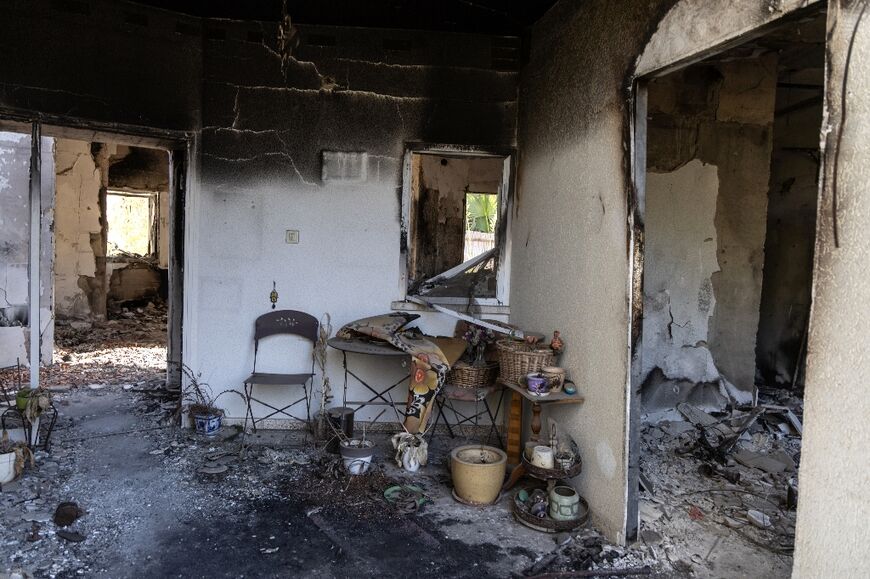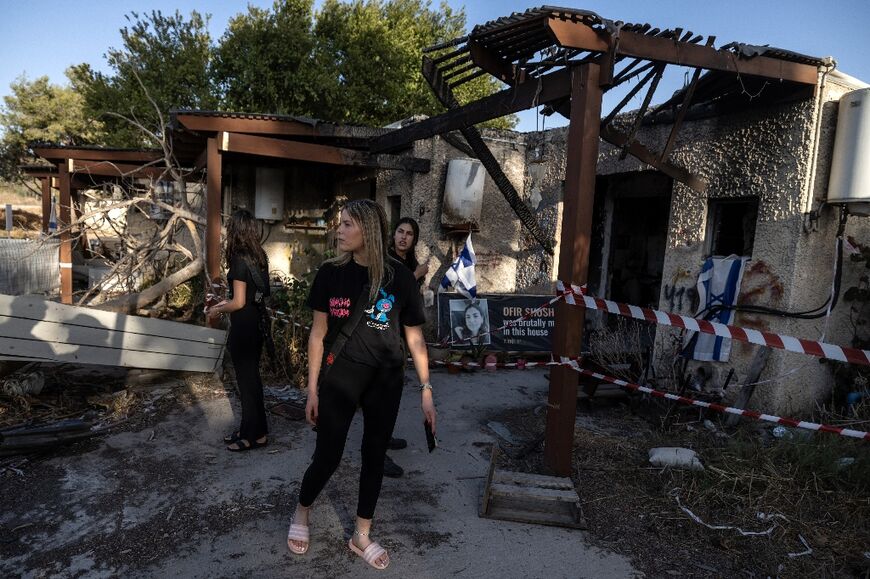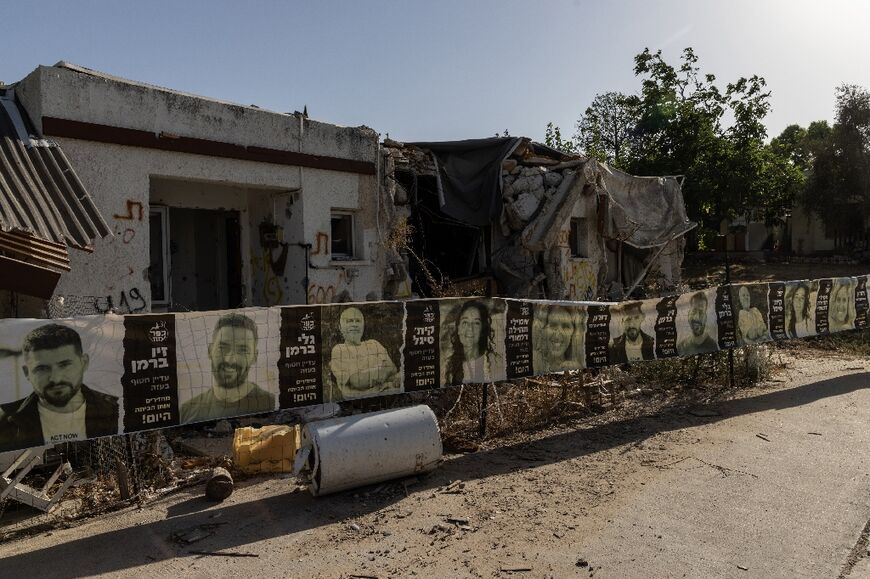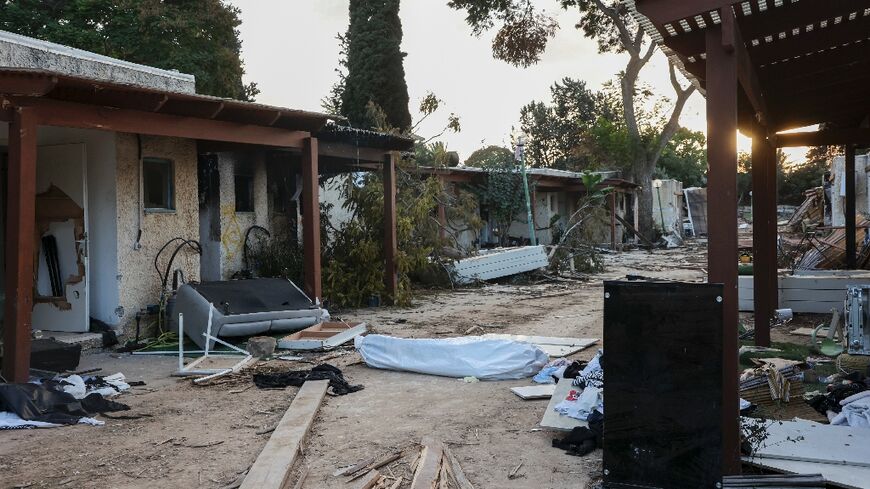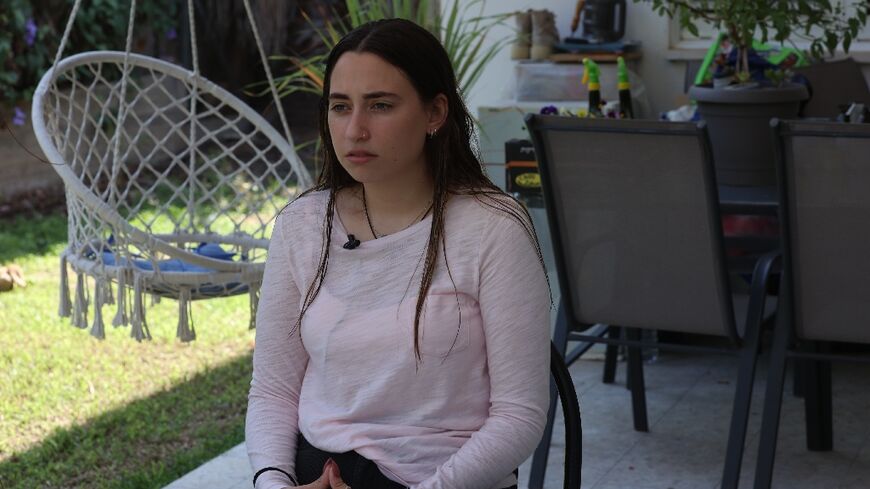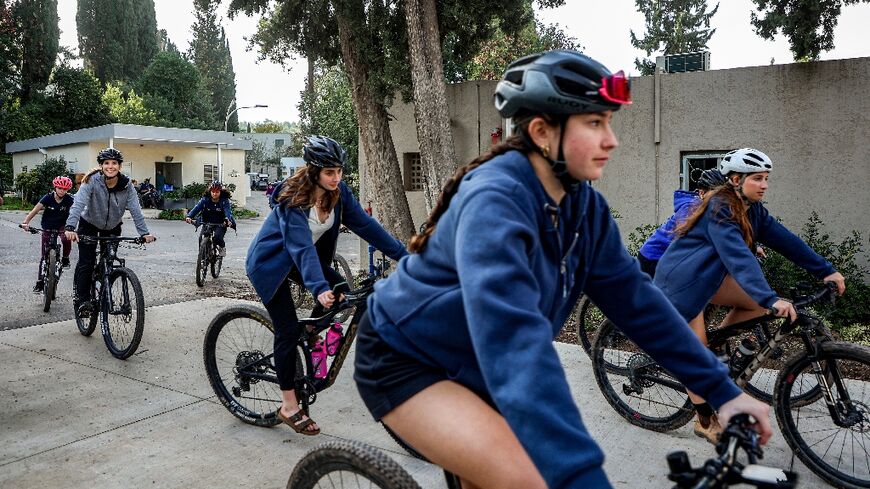Kibbutz visit stirs grim memories of Israeli family slain on October 7

Time stopped on October 7 for Adi Levy-Slama, who lost five relatives gunned down by Hamas bullets in Kfar Aza, a kibbutz in southern Israel near the Gaza border.
"We found them wrapped around each other, all five of them, but we don't know what happened," Levy-Slama told AFP, her voice shaking at the memory.
The dead were Levy-Slama's 49-year-old sister Livnat Kutz and her family: her husband Aviv, 53, their 18-year-old daughter Rotem and their sons Yonatan, 16, and Yftah, 14.
Earlier this month, before heading from their home in central Israel to visit the kibbutz, Levy-Slama, 37, and her family attended a ceremony marking the end of the Jewish mourning period at the Gan Yavne cemetery, 30 kilometres (20 miles) from Kfar Aza.
"Sadness, guilt, frustration, pain, all these emotions live within me, day and night, since October 7," Asher Levy, Adi's brother, said during the ceremony, standing in front of the Kutzes' graves.
- 'Signs of peace' -
Hamas's attack on October 7 resulted in the deaths of 1,205 people on the Israeli side, most of them civilians, according to an AFP tally based on Israeli official figures.
Israel's retaliatory military campaign in Gaza has killed at least 41,431 Palestinians, the majority of them civilians, according to figures provided by the health ministry in Hamas-run Gaza. The United Nations has acknowledged the toll as reliable.
In Kfar Aza, a kibbutz of 800 people situated two kilometres from the Gaza border, some 64 people were killed and 18 kidnapped by Palestinian militants and taken to Gaza on October 7.
The Kutz family did not have time to alert their relatives to what was happening.
Their house's broken back door offers some idea of how Hamas fighters forced their way inside to what Levy-Slama had previously considered "an island of happiness".
As she showed an AFP team around the house, she recalled past picnics on the lawn, her nephews laughing as they played basketball.
Her niece, she said, had served as a young soldier.
Levy-Slama also spoke of her sister, who she said was "everything" to her, and her brother-in-law, who she said organised a kite festival every year on the kibbutz.
Just one day before the attack, Aviv Kutz was putting the final touches to preparations for the 15th edition of the festival, scheduled to take place the next day.
Levy-Slama said the kites were "signs of peace", a conciliatory gesture to militants who regularly fire rockets at Israel.
- 'No more life' -
In a long interview punctuated by silences and tears, Levy-Slama evoked her sister's creativity, pointing to angel wings she fashioned out of worn toys and displayed in a communal dining area.
"These wings are a symbol that everything is possible, that each and every one can fly on his own and go very far," she said.
Livnat Kutz was supposed to celebrate her 50th birthday on October 25.
She had told loved ones she had no interest in gifts, instead asking that they perform an act of charity to mark the day.
In front of Kutzes' house, in the heavy silence of the kibbutz which has been largely empty since October 7, Levy-Slama recounted visiting just one week after the attack.
"The house was intact, the pots on the stove, the shabbat bread on the table showed there was life. Now, there's no more life," she said through tears.
"My heart is broken."
Benny Kutz, Aviv's 80-year-old father, also lived in Kfar Aza and managed to survive.
He and his wife have temporarily moved to Tel Aviv, and Benny said he had no plans to return to the place where he lived for nearly six decades.
"Time is not helping and I forget nothing. I think about it all the time," the retiree said.
"I'll never be the same again... I've lost my family and my house, immense losses."
- End of the line -
Benny's father settled in the area nearly a century ago during the time of the British mandate after fleeing pogroms in his native Poland.
Surrounded by photos of his only son and his family, Benny lamented that his father's name will not live on.
"The Kutz tribe has come to an end," he said.
In a neighbourhood of Kfar Aza dominated by young couples, all of the houses had been damaged by fire.
In front of each one, posters feature pictures and the names of those killed or kidnapped on October 7.
One of the houses -- belonging to 23-year-old Sivan Elkabetz and her partner Naor Hasidim -- is open to visitors.
The walls are pocked with bullet holes, and various items -- a mattress, articles of clothing -- are strung about in disarray.
Walking along the kibbutz's deserted streets, Levy-Slama said she still can't get used to the idea that those who lived there "won't come back".


